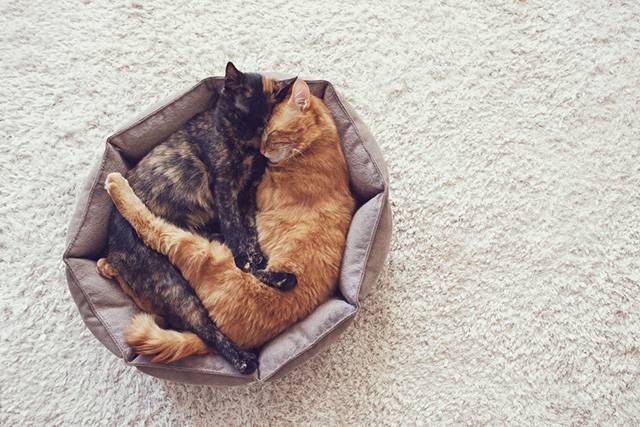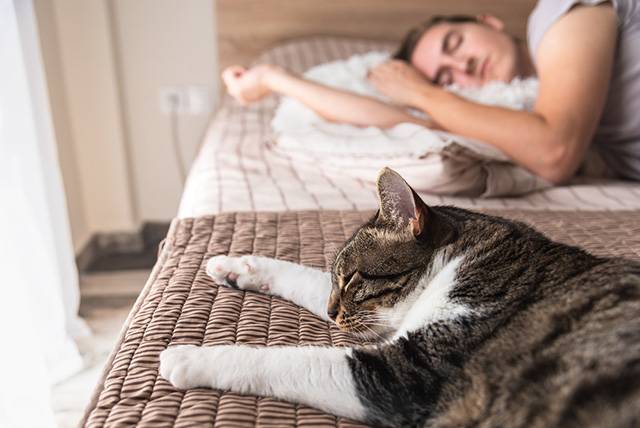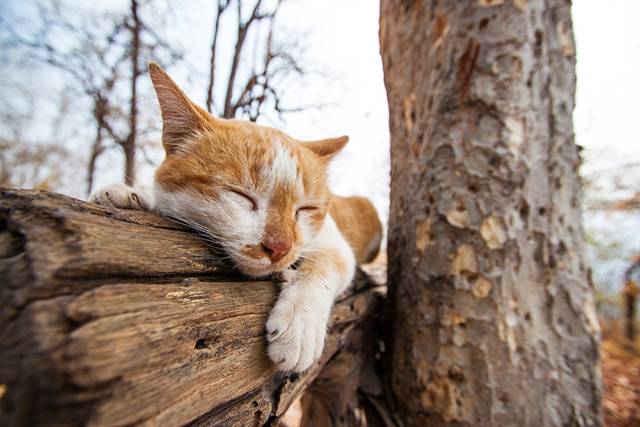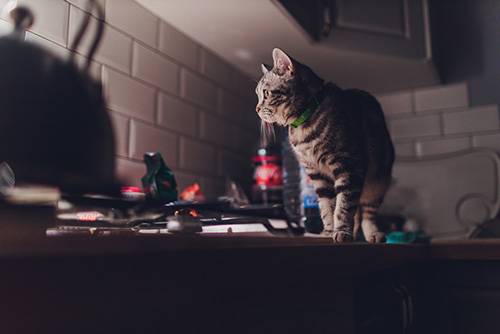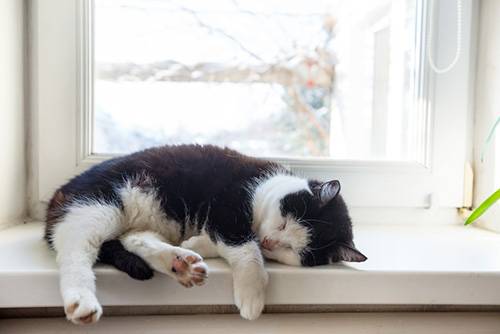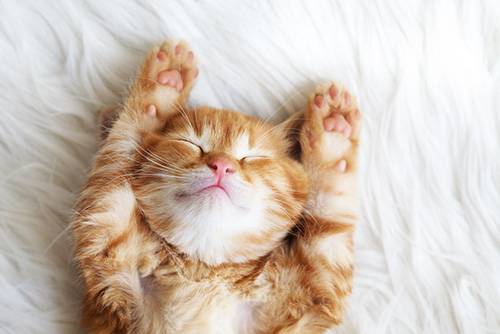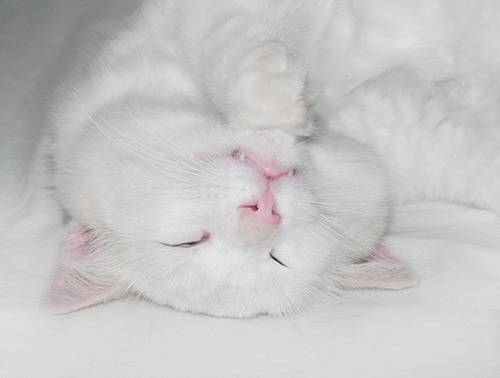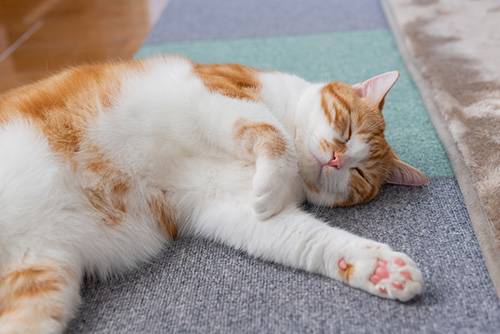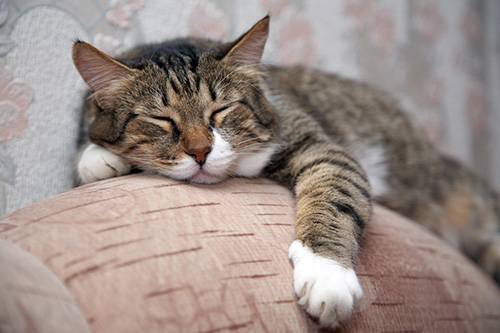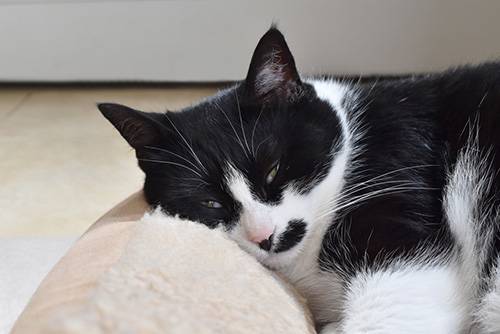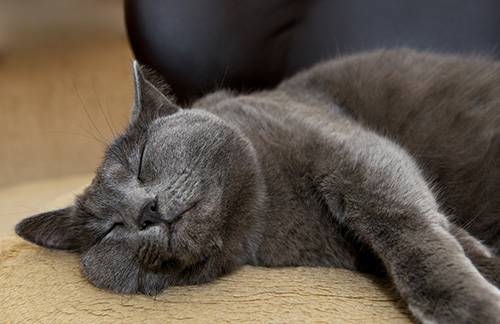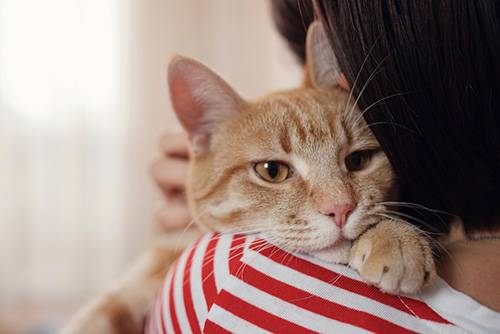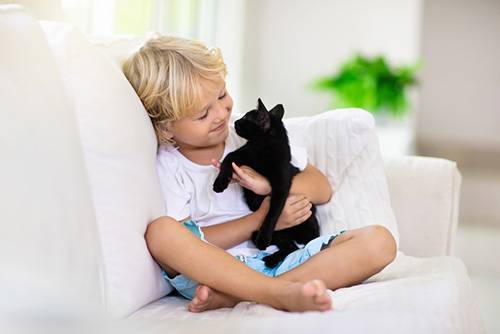Cats are lovely pets that dedicate themselves to their owners and make domestic life all the more interesting. Having a pet, no matter the type, requires a lot of research beforehand, and upkeep once you’ve committed.
Whether you’re already a cat owner or looking for some options, there is one factor which tends to alarm many novice cat owners- how much sleep a cat needs. Cats sleep A LOT, and when comparing it to a regular person’s sleep cycle, it looks quite unhealthy. But one thing to always keep in mind is that these are animals, and they don’t operate the same way.
How Much Sleep Do Cats Need?
Getting right to the point, a cat will sleep for around 12 to 16 hours a day, with a mean average of 15 hours for a healthy adult cat. There is no exact number, just as there is no exact number of hours for how many hours a person should sleep. It’s best to let your cat naturally find the time to wind down and rest, since they have a biological clock of their own to follow.
Everyone has lazier days, including cats. If your cat isn’t in the most energetic of spirits, then they can even sleep for 20 hours in one day. This is no cause for concern unless your cat makes a routine of sleeping for unhealthily long hours.
When Do Cats Usually Sleep?
Unfortunately for cat lovers, cats will sleep more in the day than they do in the night. This means that you will have to face the dead-of-night ‘zoomies’ your cat may have once it’s awake.
Why Do Cats Sleep So Much During the Day, And Are Active at Night?
The reason lies within your cat’s biological functioning. Just like its other proud predatory feline relatives, your domesticated cat is still a hunter at heart. Cousins such as the tiger, cheetah, leopard, and lion all experience the same hours of rest during the day, to prepare themselves for the hunt at night.
Cats have the advantage of sight in the dark, so they naturally select this time to hunt when other animals are impaired and at a disadvantage. All the daytime rest helps them build up the stamina and strength they need to carry out a hunt with power and intent to catch.
Now, while the only thing your cat is going to be hunting is cat toys and dinner time, it’s still a naturally woven part of their behavior that cannot be changed easily. As such, it’s best to be prepared for the fits of jitters and jumps they’ll have at three in the morning.
When is Sleep a Concern?
Although cats do sleep plenty, there are some red flags you should always keep watch for, and this is changing patterns of sleep.
Changing patterns of sleep that are not related to their growth (as will be discussed later) can become alert signs that your cat is not feeling well. If they have a drastic change in how long they sleep, it’s worth considering a trip to the vet. Sleeping shorter or longer could mean gastric issues or a level of internal/external discomfort.
Other concerns could relate to changes in appetite or energy levels. They may begin to eat too much with little restraint, or they eat too little and don’t move around as much as they used to. The vet can clarify whether it’s nothing or if it is, indeed, a cause for concern.
Sleep During Different Stages of Life
Cats have a different sleep requirement within the different stages of their life, just as people do. When we are at our youngest and oldest, we sleep the most in our lives. The in-between is shorter and more routine as we go about schedules on the daily.
The same goes for cats.
Kittens will sleep a lot during the day with a very unexpected time to wake up and go to sleep. They’ll be the most pleasant and adorable balls of fur when they’re asleep, and the most hectic creatures ever when they’re awake. Essentially, they tire themselves out with fun and play, sleep, and then wake up to do it all over again.
Once your kitten becomes an adolescent cat, there is a general idea of sleep scheduling, but that will not compromise the fits of energy and excitement. Your cat will bounce up and down all day and night whenever they’re awake and sleep light in short periods during the day to catch their breath.
Adult cats are more sober, however. Now that they understand the times you’re awake, the times they’re fed, and the times they’ll get their alone-time, they have their own schedule in mind. They’ll sleep periodically and play occasionally, with less bursts of uncontrollable energy, but those never disappear fully.
Finally, there are senior cats. These cats have a lot less patience and energy than when they were younger. They’ll still be the same playful loving companion they always were, just a lot sleepier and a lot less energized.
Do Cats Experience Deep Sleep?
Cats, like people, can experience deep sleep. Their biological programming, however, doesn’t let them reach this stage as often as people do. Only 25% of a cat’s sleep every day is deep sleep, and that is only when they are truly fatigued. The rest of their naps are light and easy to be awoken from, hence why we call them ‘catnaps.’ During this time, they aren’t truly asleep, only resting casually.
This is a part of their biological system because in the wild, they have to be constantly alert for signs of danger or potential intruders in their territory. Mother cats also have children to keep an eye on, even through the fatigue, something our mothers can relate to a bit too well.
If you want to know whether your cat is deep in their sleep or somewhat aware of their surroundings, then look at their eyes and ears. If their eyelids are fluttering and not fully shut, they’re still keeping an eye out. If their ears act like satellites pointing towards nearby sounds, then they’re still keeping an ear out.
Can My Cat’s Sleeping Habits Change?
Yes, it is entirely possible for your cat’s sleeping habit to change overtime. This isn’t always a bad sign, it could simply be your cat adjusting their schedule to yours, or something more suitable.
How many times a day you feed them and when you feed them can make them sleep a little less. They’ll want to be alert and ready for their meal, and work off the extra weight for better digestion right after.
If you and your cat play more often during the day, or you have children who actively interact with your cat, then the chance is your cat is going to be more awake than asleep in order to play.
Cats who are exposed to more light during the day, both artificial and natural, will find their explorative nature enjoys being awake more than they do asleep.
The best thing you can do for your cat is provide them with a comfortable bed, and allow their natural internal clock to take control.
Photo credit: Alena Ozerova/Shutterstock; 22Images Studio/Shutterstock;
Charleekilo/Shutterstock; Vershinin89/Shutterstock; Galyna Andrushko/Shutterstock;
Alena Ozerova/Shutterstock; Natalia Dobryanskaya/Shutterstock;
Princess_Anmitsu/Shutterstock; Zhorov Igor/Shutterstock; Maliflower73/Shutterstock;
Yuriy Seleznev/Shutterstock; FamVeld/Shutterstock
